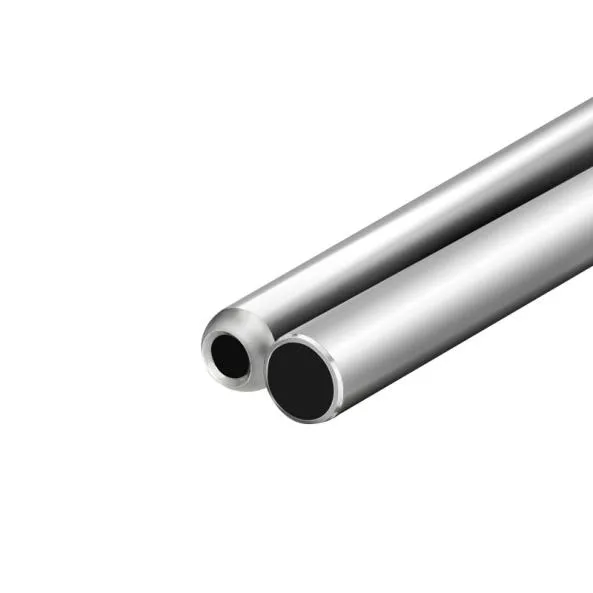differential car part
Dec . 03, 2024 17:42
Understanding Differential Car Parts A Key Component of Modern Vehicles
The automotive industry has continuously evolved, with countless innovations aimed at enhancing performance, safety, and the driving experience. Among the critical components that contribute to a vehicle's functionality is the differential. Often overlooked, differentials play a crucial role in how a car handles turns and distributes power to its wheels. This article will delve into the significance of differential car parts, their types, functions, and maintenance tips for ensuring longevity and optimal performance.
What is a Differential?
A differential is a mechanical device found in the drivetrain of a vehicle, primarily responsible for transferring power from the engine to the wheels while allowing them to rotate at different speeds. This is particularly important during cornering, where the outer wheels travel a greater distance than the inner wheels. Without a differential, vehicles would experience significant tire wear, decreased handling, and overall poor performance on the road.
Types of Differentials
There are several types of differentials available, each designed with specific driving conditions in mind. The most common types include
1. Open Differential This is the simplest and most commonly used type of differential. It allows for the wheels on the same axle to rotate at different speeds but doesn't provide any additional traction. In situations where one wheel loses traction, such as driving on snow or ice, the open differential will send power to the wheel with less grip, exacerbating the problem.
2. Limited-Slip Differential (LSD) This type of differential is designed to improve traction by allowing a limited amount of speed difference between the wheels. It uses clutches or gear mechanisms to transfer torque to the wheel with more grip, making it a popular choice for performance vehicles and off-road applications.
3. Locking Differential A locking differential can be manually or automatically engaged to lock both wheels on the axle for maximum traction. This is particularly useful in off-road situations where wheels may slip on uneven terrain.
4. Electronic Differential In modern vehicles, electronic differentials use sensors and computer control to optimize power distribution between the wheels. This technology offers improved handling and can adapt to changing driving conditions in real-time.
differential car part
Functionality of Differentials
The primary function of a differential goes beyond just allowing wheels to turn at different speeds. It also plays a vital role in enhancing vehicle stability and control. By managing how power is distributed, differentials help maintain traction, especially during sharp turns or when navigating slippery surfaces.
Maintenance of Differential Parts
Regular maintenance of differential components is essential for ensuring their longevity and performance. Here are some key tips for maintaining differential car parts
1. Regular Inspections Regularly check the differential for leaks or unusual noises. Early detection of problems can prevent costly repairs.
2. Fluid Changes The lubricant inside the differential can degrade over time. Following the manufacturer’s recommendations for fluid changes ensures that the differential operates smoothly and reduces wear on internal components.
3. Testing Performance Pay attention to the vehicle’s handling and traction. If you notice decreased performance, it may be a sign that the differential requires attention.
4. Professional Servicing Whenever in doubt, consult with a professional mechanic. They have the tools and expertise to diagnose and repair differential issues, ensuring that your vehicle remains safe and efficient.
In conclusion, the differential is a vital yet often underestimated component of modern vehicles. Understanding its role, types, and maintenance can help drivers appreciate how such a small part significantly influences overall vehicle performance. Keeping your differential well-maintained not only enhances driving safety but also prolongs the life of your vehicle, making it an essential aspect of car ownership.
 Afrikaans
Afrikaans  Albanian
Albanian  Amharic
Amharic  Arabic
Arabic  Armenian
Armenian  Azerbaijani
Azerbaijani  Basque
Basque  Belarusian
Belarusian  Bengali
Bengali  Bosnian
Bosnian  Bulgarian
Bulgarian  Catalan
Catalan  Cebuano
Cebuano  Corsican
Corsican  Croatian
Croatian  Czech
Czech  Danish
Danish  Dutch
Dutch  English
English  Esperanto
Esperanto  Estonian
Estonian  Finnish
Finnish  French
French  Frisian
Frisian  Galician
Galician  Georgian
Georgian  German
German  Greek
Greek  Gujarati
Gujarati  Haitian Creole
Haitian Creole  hausa
hausa  hawaiian
hawaiian  Hebrew
Hebrew  Hindi
Hindi  Miao
Miao  Hungarian
Hungarian  Icelandic
Icelandic  igbo
igbo  Indonesian
Indonesian  irish
irish  Italian
Italian  Japanese
Japanese  Javanese
Javanese  Kannada
Kannada  kazakh
kazakh  Khmer
Khmer  Rwandese
Rwandese  Korean
Korean  Kurdish
Kurdish  Kyrgyz
Kyrgyz  Lao
Lao  Latin
Latin  Latvian
Latvian  Lithuanian
Lithuanian  Luxembourgish
Luxembourgish  Macedonian
Macedonian  Malgashi
Malgashi  Malay
Malay  Malayalam
Malayalam  Maltese
Maltese  Maori
Maori  Marathi
Marathi  Mongolian
Mongolian  Myanmar
Myanmar  Nepali
Nepali  Norwegian
Norwegian  Norwegian
Norwegian  Occitan
Occitan  Pashto
Pashto  Persian
Persian  Polish
Polish  Portuguese
Portuguese  Punjabi
Punjabi  Romanian
Romanian  Samoan
Samoan  Scottish Gaelic
Scottish Gaelic  Serbian
Serbian  Sesotho
Sesotho  Shona
Shona  Sindhi
Sindhi  Sinhala
Sinhala  Slovak
Slovak  Slovenian
Slovenian  Somali
Somali  Spanish
Spanish  Sundanese
Sundanese  Swahili
Swahili  Swedish
Swedish  Tagalog
Tagalog  Tajik
Tajik  Tamil
Tamil  Tatar
Tatar  Telugu
Telugu  Thai
Thai  Turkish
Turkish  Turkmen
Turkmen  Ukrainian
Ukrainian  Urdu
Urdu  Uighur
Uighur  Uzbek
Uzbek  Vietnamese
Vietnamese  Welsh
Welsh  Bantu
Bantu  Yiddish
Yiddish  Yoruba
Yoruba  Zulu
Zulu 












